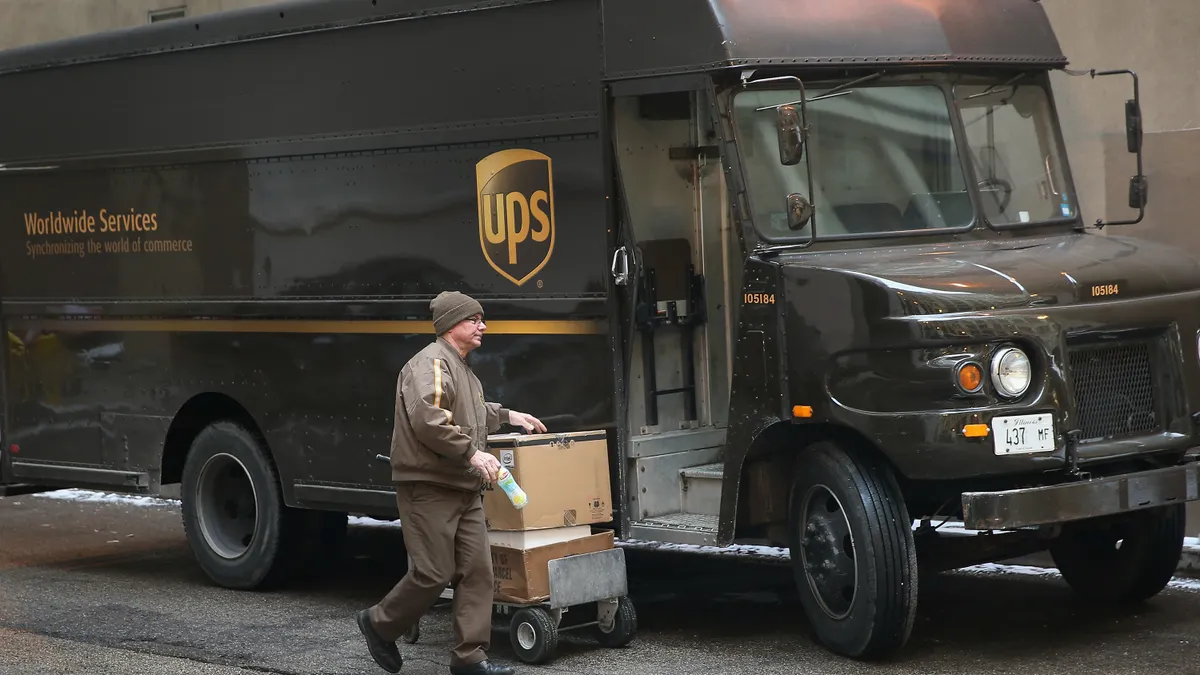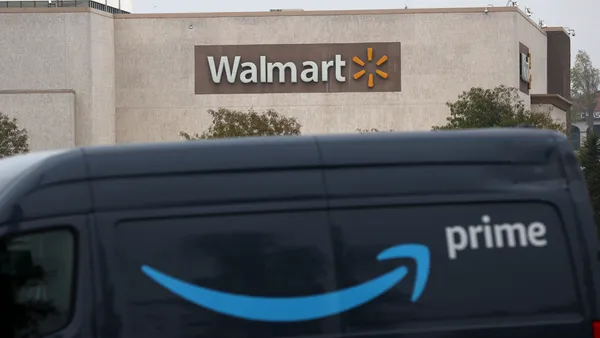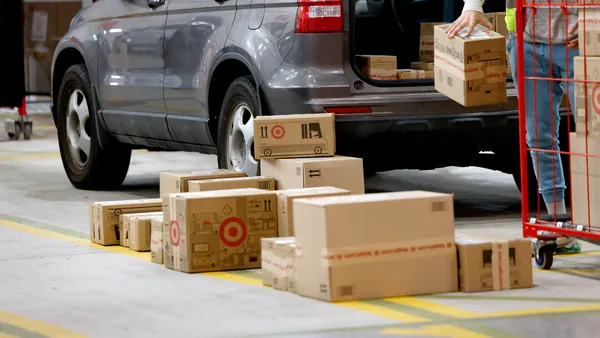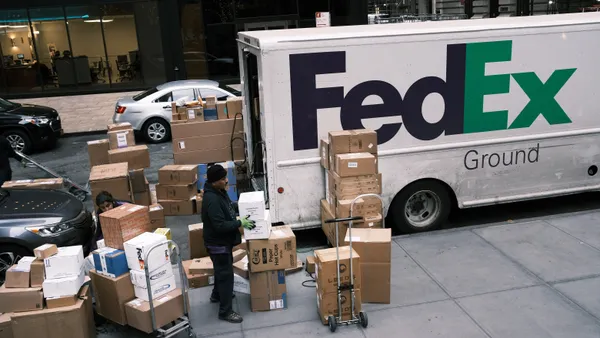Dive Brief:
- UPS and the Teamsters union aren't far apart on issues that will be discussed in their upcoming labor contract negotiations, CEO Carol Tomé said on an earnings call Tuesday.
- The Teamsters, which represent 350,000 UPS workers, have threatened to strike if an agreement isn't reached by the current contract's July 31 expiration. Tomé said a "win-win-win" contract for UPS, employees and customers is achievable by that date. "Candidly, we think with just a few tweaks to our existing contract, we can work this out," she said.
- UPS shares the same concerns with the Teamsters regarding weekend operations and instances in which employees work six days in a week, Tomé said as an example. "I don't want people working six days a week unless they want to."
Dive Insight:
UPS has been highlighting its long-established relationship with the Teamsters as it looks to quell customer and investor concerns before negotiations kick off in April.
"Over 10 decades, we've negotiated many, many contracts," Tomé said. "This is not our first rodeo."
Despite Tomé's optimism, the upcoming contract negotiations are one reason UPS is forecasting "a bumpy year" ahead, according to CFO Brian Newman. Other factors include high inflation, recession forecasts and international disruptions.
Adding further pressure to 2023 results, UPS expects average daily volume in its U.S. domestic segment to fall YoY, driven by its top customer Amazon taking on more of its own deliveries. Revenue from the e-commerce giant represented 11.3% of UPS' business in 2022, down from 11.7% the year prior, according to Newman.
"We will continue on a mutually agreed path to glide that business down in 2023," Newman said of the UPS-Amazon relationship, adding that growth from other customers will nearly offset the volume declines.
Even with delivery activity expected to fall, UPS is still projecting revenue per piece growth in the mid-single digits in 2023, according to Newman. That would mirror what the company saw in its U.S. domestic segment in Q4 — volume fell 3.8% while revenue per piece increased by 7.2%.
The turbulent 2023 forecast isn't dissuading UPS from investing in its network to fuel growth and improve operating efficiencies, however. Newman said capital expenditures for the year are expected to total around $5.3 billion dollars, which will include adding more automated sortation capabilities and building out the company’s logistics-as-a-service offering.
"The fundamental changes we made to our business, coupled with the continued execution of our strategy, will help us navigate what's ahead in 2023," Newman said.















